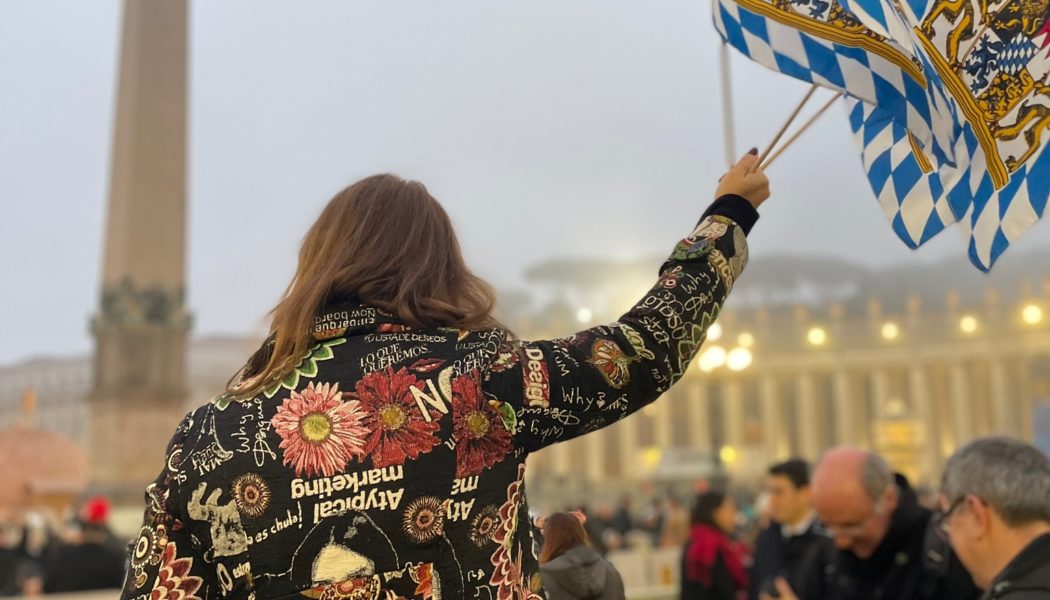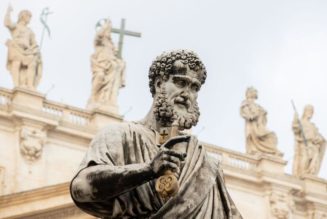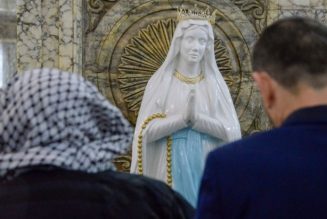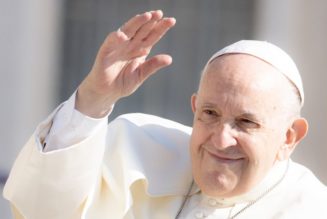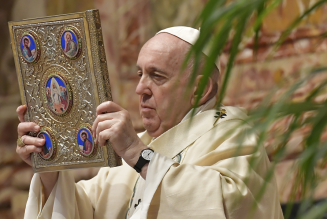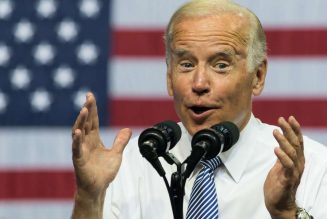VATICAN CITY — Benedict XVI may have been laid to rest yesterday, but his impact on the Church is far from over. In fact, German Catholics are hopeful that Benedict’s passing will usher in a new era of his influence on the Church in their homeland — particularly at a time when the Church in Germany continues to be rocked by the much-criticized Synodal Way.
“The fact that Benedict died at this moment of crisis brings up all his books, all the truths he brought forward, all the things he already told us, especially as Germans,” said Birgit Kelle, spokeswoman for New Beginning (Neuer Anfang), a movement of German Catholics opposed to the Synodal Way. “This has to have a new impact on the discussion in Germany. Because this man stood for everything [Synodal Way activists] don’t want.”
In particular, Kelle, a well-known German journalist and author, cited Benedict’s resistance to relativism and his commitment to defending the unchanging nature of the truths of the faith.
By contrast, she said Synodal Way activists “try to vote on the truth” so they can change the Church to match a secular, progressive agenda. Among the changes demanded by the Synodal Way, which has no canonical status, include the attempted ordination of women and the moral acceptance of sex between people of the same sex.
“We don’t need change,” Kelle told the Register. “We need renewal.”
Johannes and Ferdinand Herder, brothers from the Munich area who were also in St. Peter’s Square for Benedict’s funeral, agreed that Benedict will continue to inspire the German faithful, especially during this difficult chapter.
“He was searching for truth, and the truth is timeless,” said Ferdinand. “There’s a big heritage that he’s left behind for us and a lot that we can work on.”
Criticism From Back Home
Perhaps aware of the renewed relevance that Benedict’s passing brings to his theological legacy, the pro-Synodal Way German media went into attack mode against the Pope Emeritus in the days following his death — and, at least in one case, even before he had passed.
The left-wing newspaper Taz released an obituary of Pope Benedict on Dec. 30, after it had been made public that his health was declining, but before he died on the morning of Dec. 31. Other German publications moved quickly to discredit the first German pope in 1,000 years: He was responsible for a “dying church” because he opposed progressive reforms, claimed Zweites Deutsches Fernsehen, a German public broadcasting agency. Meanwhile, the Catholic “spirituality” blog Feinschwarz wrote that “fear of social change” was the unifying element of Benedict’s theological positions and stances throughout the years.
For Kelle, the explanation for these smears so soon after Benedict’s death is clear.
“Pope Benedict stood for the truth of our faith,” she said. “And I think that is why they don’t want to remember him and pay him the respect he deserves.”
Hanna-Barbara Gerl-Falkovitz, a German philosopher and a 2021 winner of the prestigious Ratzinger Prize, told the Register that opposition to Benedict in Germany has been aided by a media that “projected the image of a stubborn dogmatic pope — without reading his outstanding theological works.” She also said that “jealousy” among other German theologians made Benedict a compelling target, someone an ambitious academic could constantly attack in order to make a name for him or herself.
Rafael Vertsch, originally from Munich but now a seminarian for the Community of St. Martin in France, criticized what he described as clear attempts by the media to slander Benedict in order to undermine his legacy.
“Everyone tries to put him into a negative light,” he told the Register after the funeral. “I would go as far as to say that he’s loved in every country more than in Germany.”
Enduring (and Youthful) Influence
Johannes Herder acknowledges that Benedict definitely has his critics in Germany. But he told the Register that these voices aren’t necessarily representative of how most German Catholics feel about the late pope; they’re just “louder,” amplified through the media and activist tactics.
“I think people will come to recognize his legacy and influence,” he said, “even those who don’t recognize it right now.”
Julia Schumer, who traveled to Rome for the funeral from Müllenbach in western Germany, said that while Benedict has been criticized a lot, German Catholics “actually loved him.”
“Benedict was our pope,” she explained.
Nicholas Brüehl, a native of Holzkirchen who now studies philosophy at the Pontifical University of St. Thomas Aquinas in Rome, said that Benedict served as a kind of mediator between Christ, with whom he was connected through prayer, and the German people.
“He understood the divine mysteries so deeply, and he translated that into our words, into German words,” Brüehl told the Register.
The late Pope seems to be especially beloved among young-adult Germans who are still practicing their Catholic faith, a group that was particularly well-represented in St. Peter’s Square for the funeral.
“Generation Ratzinger” is the name given to the movement of young people that took a deep interest in the German theologian’s thought upon his election to the papacy in 2005, which was particularly significant in his native Bavaria. Many of those interviewed for this story said that the thought and witness of Benedict continues to be something of a guiding light for Catholics committed to living out their faith consistent with the tradition of the Church amid the current crisis within the Church in Germany.
Gerl-Falkovitz explained to the Register that Benedict’s theology is institutionally poised to have a significant influence in the future, even if the current generation of Church leadership doesn’t appreciate him.
“In the theological seminaries, he is more and more read, although the elder generation still retains its prejudices.”


Heavenly Intercessor?
In addition to his potential post-mortem impact vis-à-vis his philosophy, German Catholics who spoke with the Register also suggested another significant way Pope Benedict will continue to aid the faithful in Germany: heavenly intercession.
“We have a saint now in Bavaria who prays for us,” said the St. Martin seminarian, Rafael, although he wondered if other regions of Germany would feel the same way.
Johannes Herder also said he expects the German faithful to turn to Benedict as a patron, adding that he’s comforted by the conviction that, even in the midst of difficult times for Catholicicm in Germany, a pope who was so greatly concerned with the vitality of the faith in Germany and on the whole of Europe during his earthly lifetime is united to God in heaven.
“I know he’s a strong intercessor in heaven right now, because he was an intercessor for the Church his last decade on earth.”
The Herder brothers’ mother, Erika, added that the fact that the Church has not yet officially recognized Benedict XVI as a saint shouldn’t deter German Catholics from turning to him in intercessory prayer, especially given the challenges presently facing the Church in his homeland.
“He’s not canonized at the moment, but we can pray to him,” she said. “Because we need miracles.”
